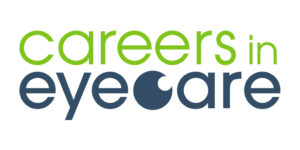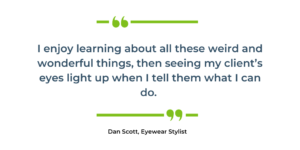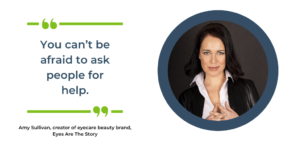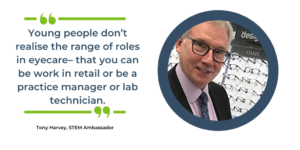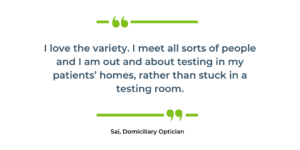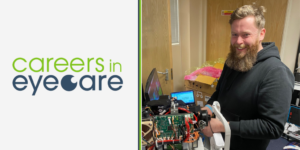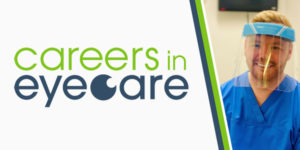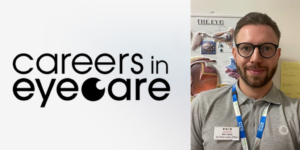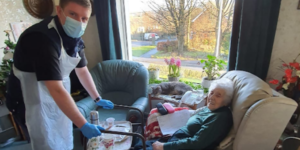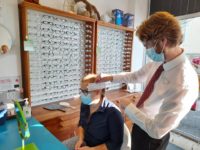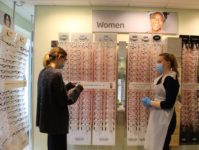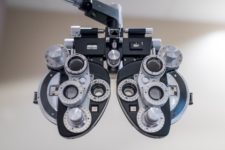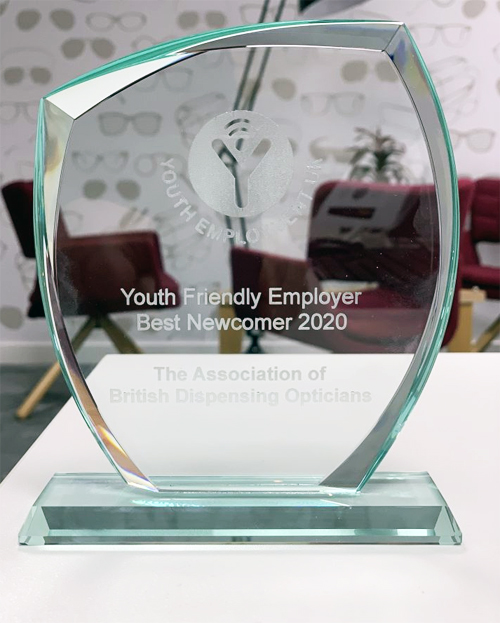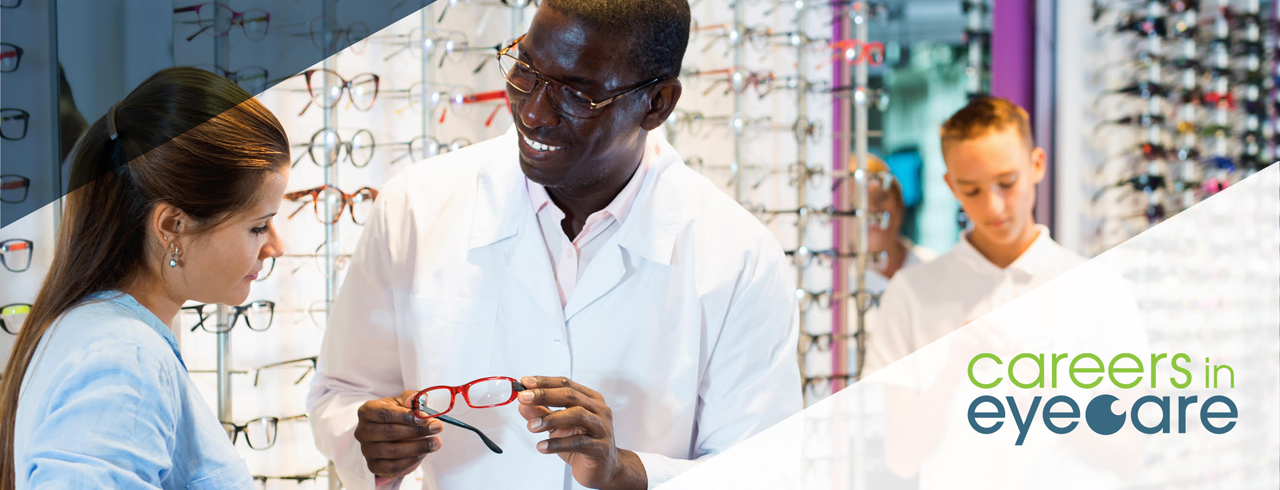
Brighten Your Future With Careers in Eyecare
Careers in eyecare offer a lot of potential to young people. Open your eyes to the possibilities...
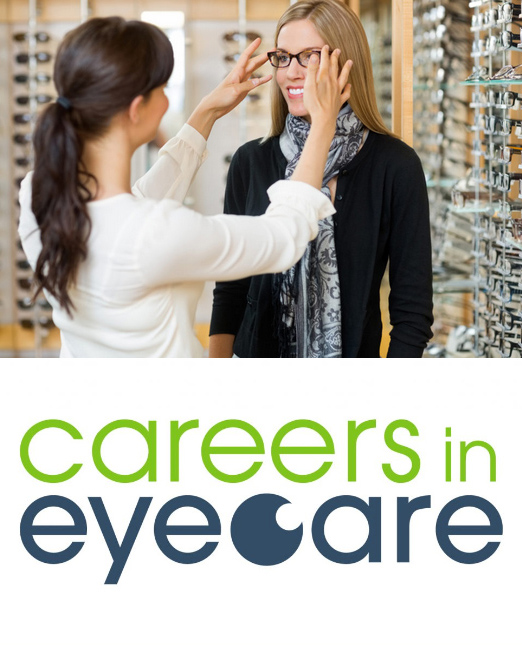
Careers for everyone
There are many interesting careers in eyecare and eye wear, with entry at all levels. Whatever your background and interests, you can take your next steps into an eyecare career.
Careers with a chance to earn AND learn
Careers in eyecare can give you the chance to earn while you learn, with courses leading to qualifications at various levels including a diploma or degree.
Caring, creative careers
Whether you want to work in fashion or technology, whether you are interested in caring for people or science, if you want to work in retail, in management, in design or in manufacturing, there’s an eyecare career for you.
About careers in eyecare
The Association of British Dispensing Opticians brings you Careers in Eyecare.
Careers in Eyecare brings together a range of organisations including employers, educators and professional bodies to help you find out about the eyecare careers available.
Did you know?
You can start at entry level and earn while you learn as an optical assistant or technician, with opportunities to continue to study to become a dispensing optician or optometrist.
Getting started in a career in eyecare
Why not contact an optician near you to find out about work experience? Many people who work in eyecare have started out with a part time or first job in an opticians and found it so interesting they studied for qualifications while working. You can train as an optical assistant with a minimum of 5 GCSEs including maths, English and a science. There are access courses to help if you need to make up one of those qualifications.

Careers in eyecare - FAQs
There are a number of people who work in an optical practice:
- the optometrist
- the dispensing optician
- optical assistants (often more than one)or receptionists.
In some practices you will also find a laboratory where optical technicians make spectacles.
Click the links to find out more about these eyecare careers and how you can get into them!
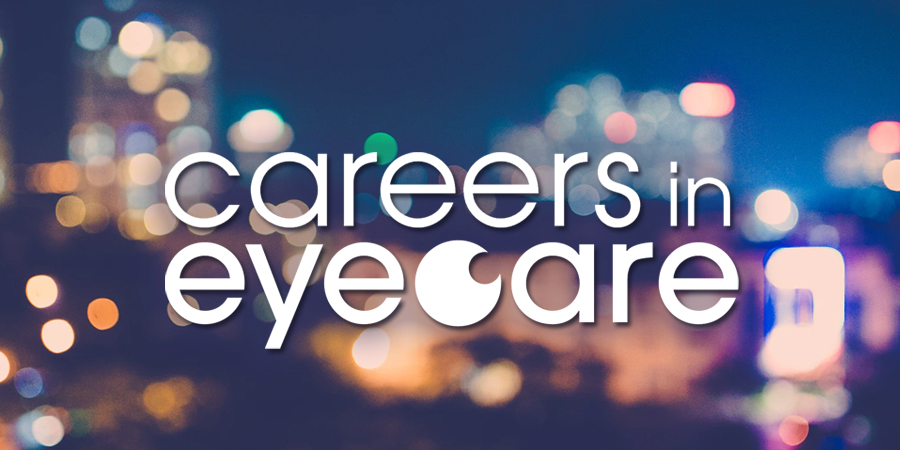
There are a number of people who work in an optical practice!
The first person you will meet is likely to be the receptionist who can book your appointment.
You may also meet an optical assistant in the front of the practice. They can assist you to choose frames and lenses and some (as can an optical sales representative). They may also be trained to carry out initial assessments before your eye test.
The optometrist is the person who examines your eyes. They will then pass you on to the dispensing optician who is trained and qualified to offer the best advice on frames and lenses to suit your lifestyle and prescription.
In some practices you will also find a laboratory where optical technicians make spectacles. When you return to collect your new specs they may be fitted by the dispensing optician or an optical assistant.
If any of these eyecare careers sound like something you might be interested in, click the links to find out more.

A dispensing optician (DO) advises on, fits and supplies the most appropriate spectacles after taking account of each patient’s visual, lifestyle and vocational needs.
Dispensing opticians also play an important role in advising and dispensing low vision aids to those who are partially sighted as well as advising on and dispensing to children where appropriate.
They are also able to fit and provide aftercare for contact lenses after undergoing further specialist training.
Career opportunities also exist to develop business skills in marketing and practice management.
See how to become a dispensing optician!
Dispensing Optician Career Guide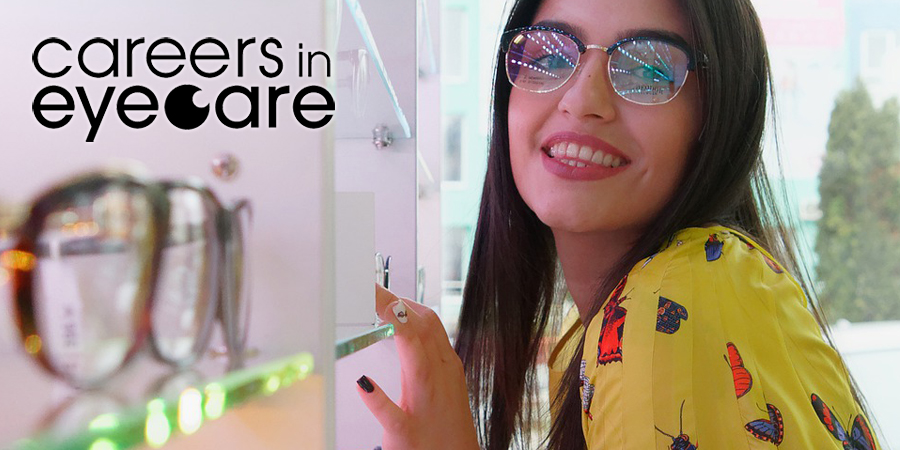
What is a contact lens optician?
A contact lens optician (CLO) is a specialist practitioner who is trained and qualified to fit, and provide aftercare for, patients with contact lenses. Contact lens opticians assess whether contact lenses meet the needs of the person, resolving clinical and tolerance issues, and remain responsible for clinical decisions enabling them to provide continuity of care.
The contact lens speciality is open to dispensing opticians only and involves extra study and clinical practice. Once the specialist training is completed and competence assessed, practitioners must register their speciality with the General Optical Council. They are then able to perform additional duties to those of a dispensing optician.
How do I become a contact lens optician?
Once you have qualified as a dispensing optician you can go on to study and specialise in fitting contact lenses to help you become a contact lens optician.
This course is delivered by a method called ‘blended learning’ that consists of practice based learning, block release and distance learning coursework. You receive coursework material to work through and assignment questions to answer for each part of the course. A personal tutor will mark it for you and return it to you with feedback. As the course is at advanced level, you will also need to undertake some additional research and read around the subject in order to gain a thorough understanding of the subject.
While you are studying for your CL Cert you will be training in contact lens practice. You and your supervisor will be issued with a workbook to guide you both through this part of your training. You will learn practical skills from your supervisor and work with patients in practice (under supervision) to perfect these skills. To become a contact lens optician, you will also need to complete a set number of case records that you build up over a one-year period and makes up a part of your final examinations.
The approved training course for the contact lens speciality is run by ABDO College and Bradford College.
See how to become a contact lens optician!
Contact Lens Optician Careers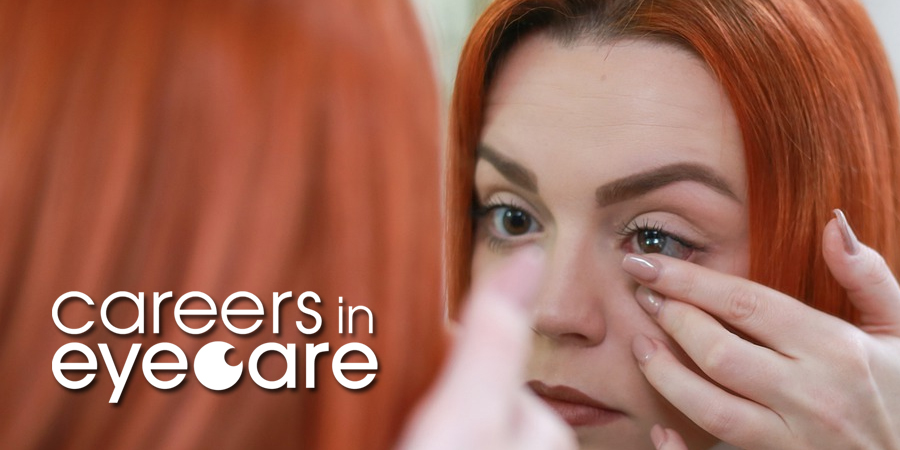
A low vision optician is a dispensing optician who has additional qualifications to support people who are blind or partially sighted, offering advice, assessment and relevant equipment to allow them to make the most of the sight that they have.
Low vision courses are offeed by ABDO College and WOPEC.
See how to become a low vision optician with our career guide.
Low vision optician careers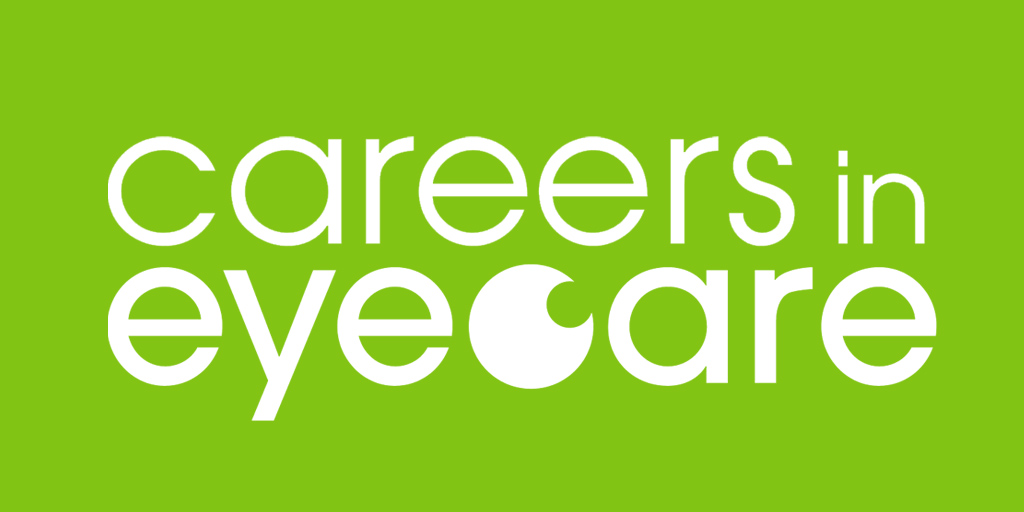
What does an optical assistant do?
An optical assistant works under supervision in an optical practice to assist people with choosing frames and lenses. Some optical assistants also have training to allow them to carry out initial assessments before an eye examination such as autorefraction.
How do I train to become an optical assistant?
If you are interested in becoming an optical assistant, you need to apply for a position in an optical practice that offers on the job training. As you work you will be given the chance to study for a optical assistant qualification via ABDO College.
See how to become an optical assistant.
Optical assistant careers guide
What does an optical technician do?
An optical technician is trained and qualified to make or ‘glaze’ spectacles. They work in an optical lab which may be attached to an optician’s practice. They may also progress within industry to become senior management in optical manufacturing organisations.
How do I train to become an optical technician?
If you are interested in becoming an optical technician, you need to apply for a position in an optical lab that offers on the job training. As you work you may be given the chance to study for a qualification or complete an apprenticeship.
Optical technician careers
Optometrists study a three or four-year degree course at a university. There are ten universities that currently offer training in Optometry.
After completing the degree, trainee optometrists need to go on to complete a pre-registration year where they practice under supervision of a qualified optometrist, write up case records and take further practical exams.
All optometrists need to be registered with the General Optical Council.
See how to become an optometrist with our career guide.
Optometrist careers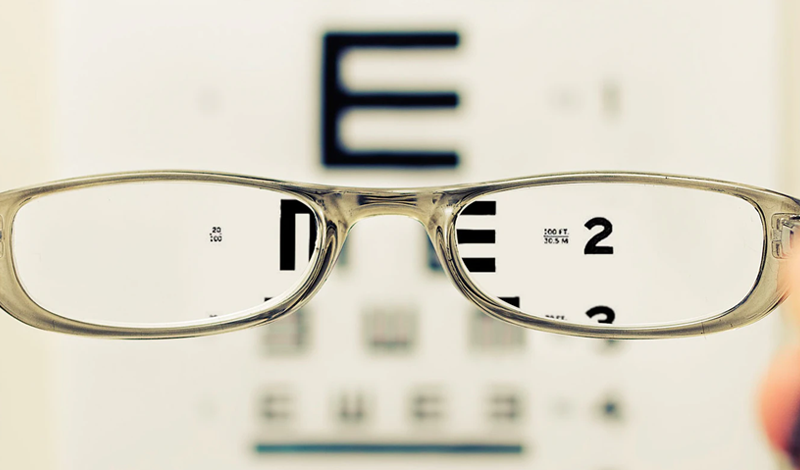
The eye and visual system can be affected by a range of clinical conditions. Ophthalmology is a branch of medicine dealing with the diagnosis, treatment and prevention of diseases of the eye and visual system. There are a number of professions associated with this area of work. For example, you could train to become an opthalmologist, ophthalmic nurse, or orthoptist.
What is an ophthalmologist?
An ophthalmologist is a trained doctor who specialises in eyes.
What is an ophthalmic nurse?
An ophthalmic nurse has qualified as a nurse before going on to specialise in eyes. You will find them in a hospital eye clinic, providing care for people with eye diseases.
What is an orthoptist?
An orthoptist specialises in investigating, diagnosing and treating defects of binocular vision and abnormalities of eye movement. You will find most orthoptists working in a hospital setting, helping children who have squint or lazy eye (amblyopia).
Click the links to find out more and explore possible routes into these careers.

An eye clinic liaison officer (ECLO) is based in an eye clinic. They are there to talk to people who may be newly diagnosed with sight loss, and to help them get emotional and practical support from local voluntary organisations, health and social care. Eye clinic liasion officers can help you understand more about your eye condition.
ECLO career guide
You have lots of options when it comes to exploring a career in eyecare after school. You don't always need a degree - you can take your next steps through alternative routes, from traineeships to apprenticeships and beyond. These tips can help you get started -
Results day tips - what next if you didn't get the grades for university?
Job application tips - DOs and DON'Ts
How to prep for job interviews - example interview questions
Tips on using traineeships to build skills and experience
Tips for successful online learning
Tips for successful Optical Assistant apprenticeships

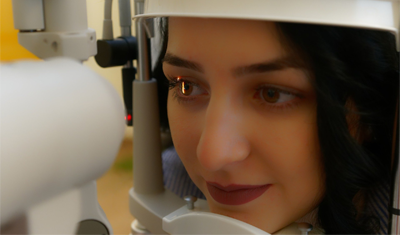
AN OPTOMETRIST...
Examines your eyes to check their health and see if you might need extra eyecare or a new prescription
Career Guide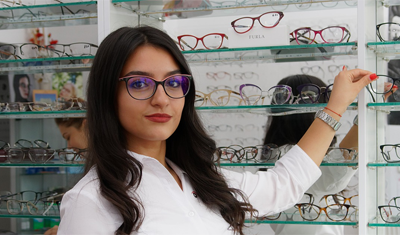
A DISPENSING OPTICIAN...
Offers advice on frames and lenses that are best for your prescription and lifestyle
Career Guide
AN OPTICAL ASSISTANT...
Helps customers choose eyewear and eyecare products in an optician's.
Career GuideEyecare career guides
These eyecare career ideas could be a great match for you. See what's involved and how to get started...
-

Contact Lens Optician – ABDO Careers in Eyecare
-

Dispensing Optician – ABDO Careers in Eyecare
-

Eye Clinic Liaison Officer (ECLO) – ABDO Careers in Eyecare
-

Lens Designer – ABDO Careers in Eyecare
-

Low Vision Optician – ABDO Careers in Eyecare
-

Ophthalmic Nurse – ABDO Careers in Eyecare
-
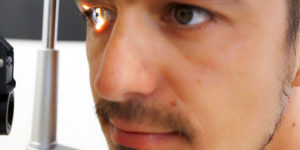
Ophthalmologist – ABDO Careers in Eyecare
-

Optical Assistant – ABDO Careers in Eyecare
-

Optical Laboratory Technician – ABDO Careers in Eyecare
-

Optical Practice Manager – ABDO Careers in Eyecare
-

Optical Sales Representative – ABDO Careers in Eyecare
-

Optometrist – ABDO Careers in Eyecare
-

Orthoptist – ABDO Careers in Eyecare
-

Vision Rehabilitation Assistant – ABDO Careers in Eyecare
Eyecare career tips and insights
These tips could help you on your journey to work. Ace interviews and make the most of your moment in the spotlight!
Earn while you learn with eyecare careers
The Association of British Dispensing Opticians (ABDO)
For further careers information, visit the website of The Association of British Dispensing Opticians (ABDO).
ABDO site ABDO CollegeThe Association of British Dispensing Opticians (ABDO) has won two awards for its Careers in Eyecare campaign.
In 2021, ABDO won the Creating Opportunity YouthFriendlyEmployer Award. In 2020 ABDO won the ‘Best Newcomer’ award from Youth Employment UK. The Career in Eyecare campaign promotes careers across the sector, highlighting the range of clinical, fashion, design, technical and retail roles available. It maximises the use of social media to reach out to young people, parents and careers advisers, and those looking to change career.
Antonia Chitty, ABDO Head of Communications, and Nick Walsh, ABDO Sector Services Development Officer, received the award on behalf of ABDO at a virtual ceremony. The awards were presented by Kirstie Donnelly MBE – CEO, City & Guilds and David Phillips, Managing Director, City & Guilds and ILM.
Kirstie said, “Making a business youth friendly is a feat in itself, it is not easy to bring about change. The principles of Good Youth Employment need thinking about. This has been the mission of our Newcomer of the Year Award Winners, in the hopes of bringing to life a rather well hidden sector to young people of all experiences.”

